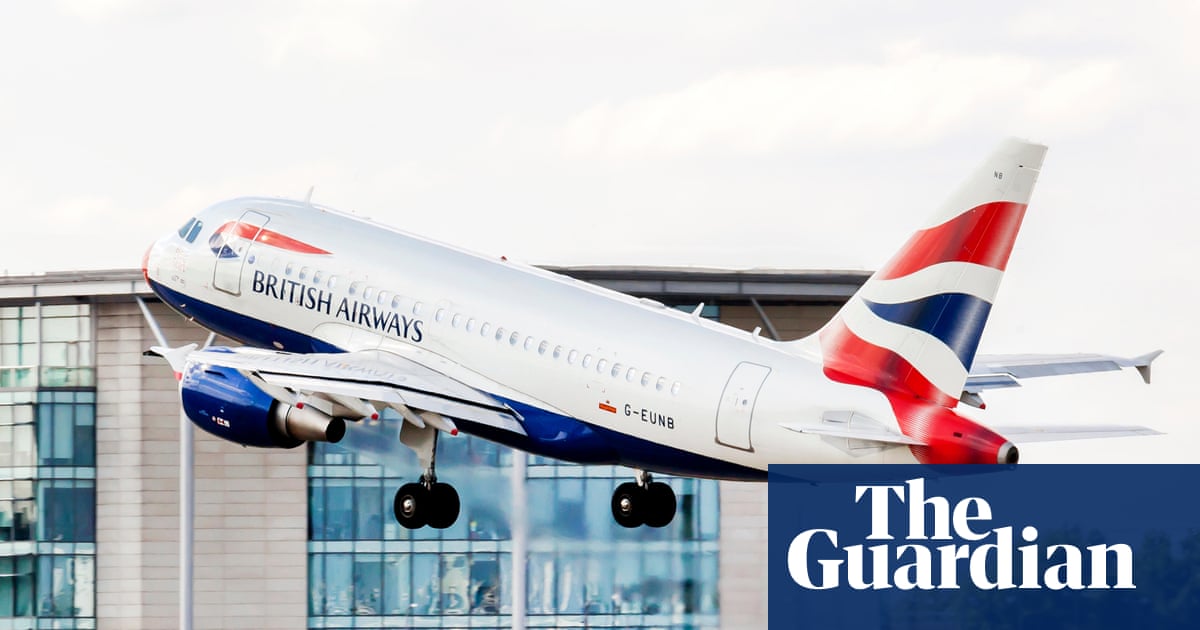
IAG, the owner of British Airways, is to raise €2.75bn (£2.49bn) to strengthen its balance sheet after reporting a record loss as the coronavirus pandemic continues to hammer the travel market.
IAG, which also owns Iberia and Aer Lingus, reported a loss of €4.2bn (£3.8bn) in the first half of the year as passenger numbers collapsed. The group made a €1.1bn profit in the first half of last year.
The group, which said passenger numbers fell by 98% in the second quarter, has already said it is to cut 12,000 jobs to reduce costs. The impact of travel and border restrictions in most countries meant it was only able to operate a “skeleton passenger schedule” in the second quarter, only 5% of the capacity compared with the same quarter last year.
Willie Walsh, IAG’s chief executive, expects it to take until at least 2023 for passenger demand to reach the pre-coronavirus levels of 2019.
“All IAG airlines made substantial losses,” Walsh said. “Each airline has taken actions to adjust their business and reduce their cost base to reflect forecast demand in their markets.”
The group is asking investors to back a €2.75bn equity raising and has already secured the support of its largest shareholder, Qatar Airways. Qatar Airways spent $600m upping its stake in IAG from 21% to 25% in February, just before the coronavirus pandemic took hold globally.
“This will enhance the group’s resilience, balance sheet and liquidity position,” Walsh said. IAG’s shares fell 7% in early trading on Friday.
The half-year operating loss included €2.2bn of exceptional costs relating to the early retirement of British Airways’ Boeing 747s and Iberia’s Airbus A340s, as well as costs relating to its fuel-hedging programme.
The group, which failed to see a hoped-for recovery in air travel in July, said it is planning for an improvement in traveller numbers but expects capacity to be down by 74% in the third quarter compared with 2019 and down by 46% in the fourth quarter.
“We are nowhere close to where we had hoped to be as a result of the continuing restrictions that government has introduced,” said Walsh, speaking on the BBC Radio 4 Today programme.
“In July we will operate about 20% of capacity versus 2019; we had been hoping for 50%. That demonstrates that these ongoing restrictions are having a severe impact on the ability of airlines to operate.”
Walsh said he expected an increase in these numbers when restrictions were lifted.
“Domestic markets recover much more quickly than international markets,” he said. “When restrictions are removed there is very clear evidence of pent-up demand and passengers do start flying again.”
He added that the quarantine restrictions introduced for travellers flying to Spain had not discouraged customers flying to other parts of Europe.
The group has so far refunded more than £1bn to customers but Walsh admitted it could have moved more quickly. A Civil Aviation Authority review of airlines’ performance on refunds released on Thursday said that test calls to British Airways terminated after a recorded message had played out.
Walsh said: “It is important for us to acknowledge that we have disappointed people and not been able to refund people as quickly as we would like.
“The scale of this challenge goes beyond anything we have seen before and we just weren’t prepared for it. We are significantly improving the time we refund customers. We are aiming to get back to seven days. We are currently running at an average of 14 days.” He added that much of the refund process still has to be done manually.
British Airways employs about 45,000 staff and has more than half of these on furlough. Last month easyJet, which is cutting 4,500 staff, raised £450m to strengthen its balance sheet. Virgin Atlantic, which is cutting 3,550 jobs, has also agreed a £1.2bn rescue package.











